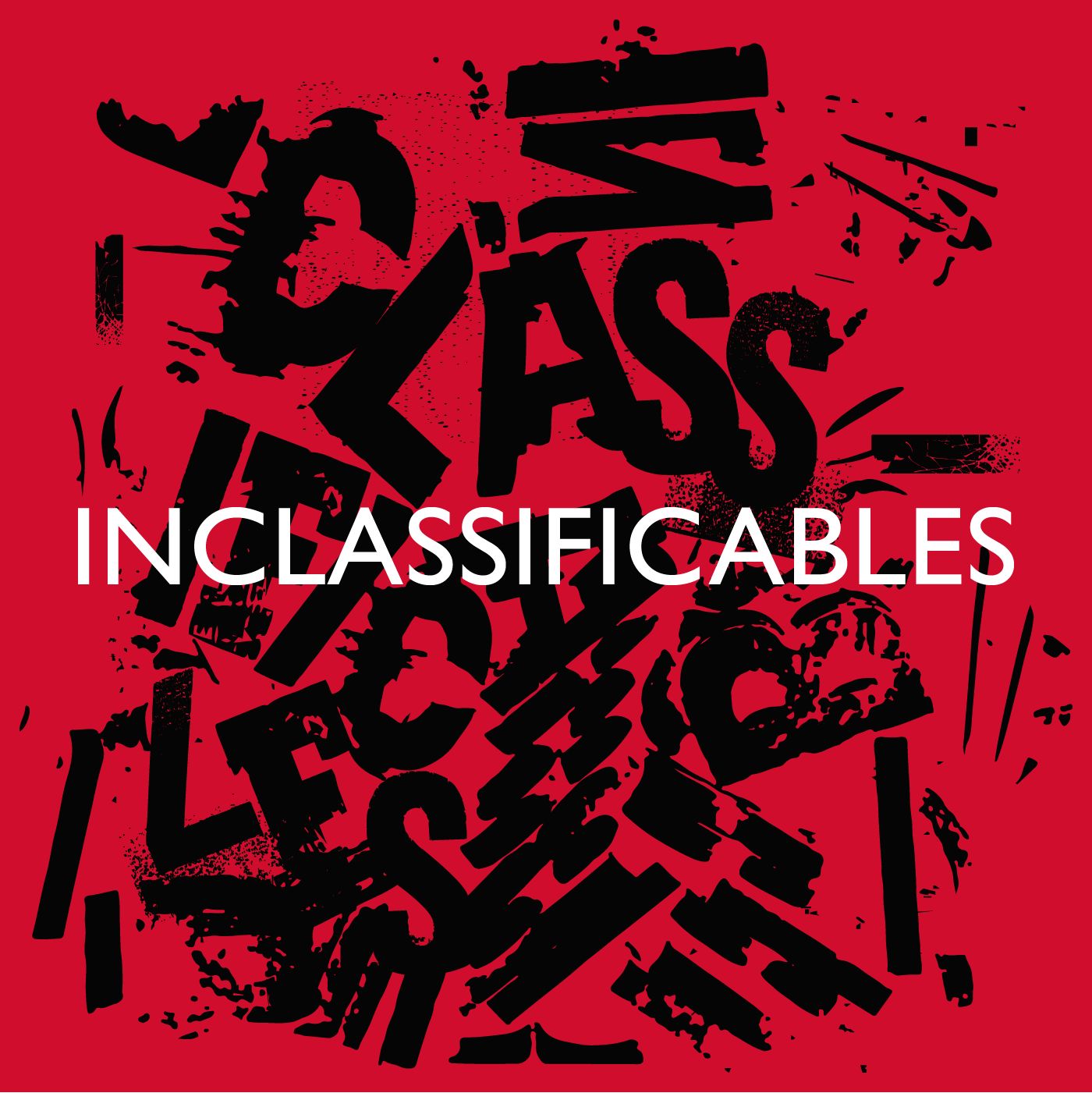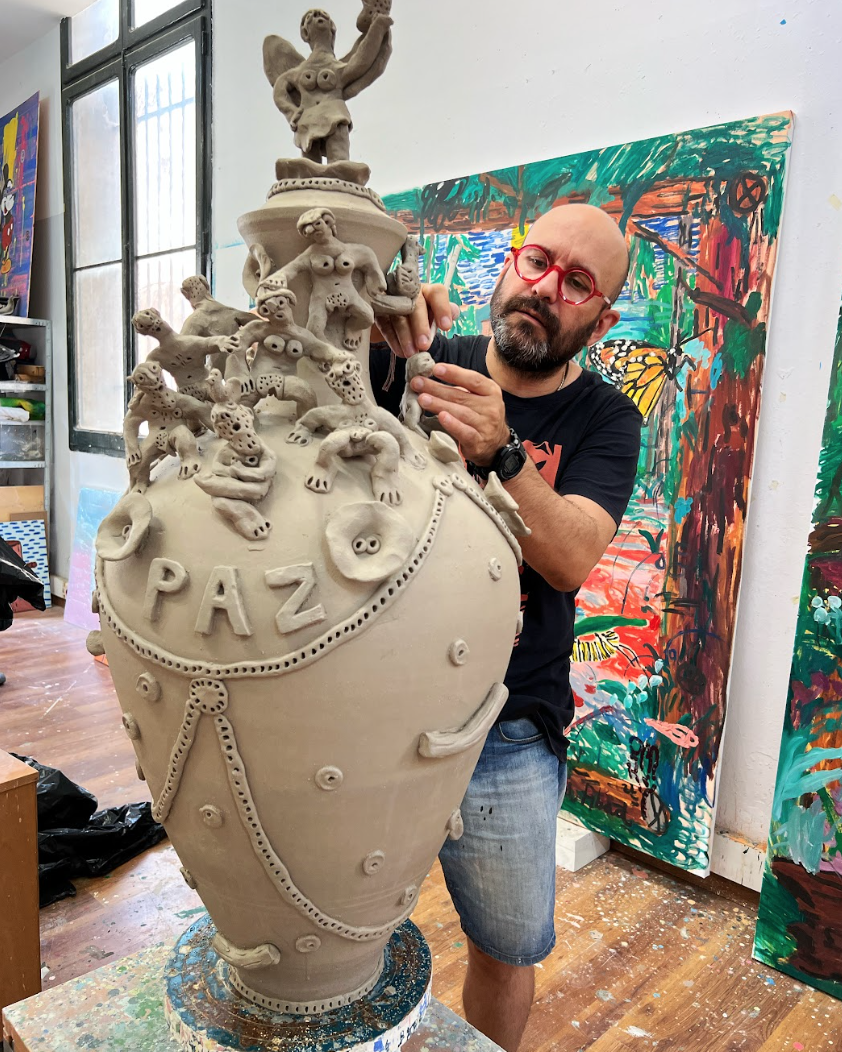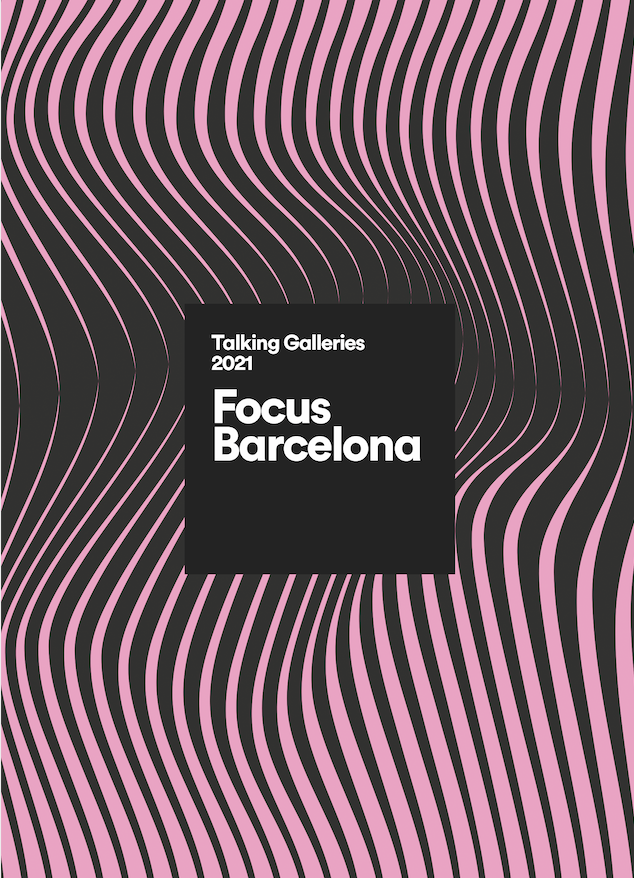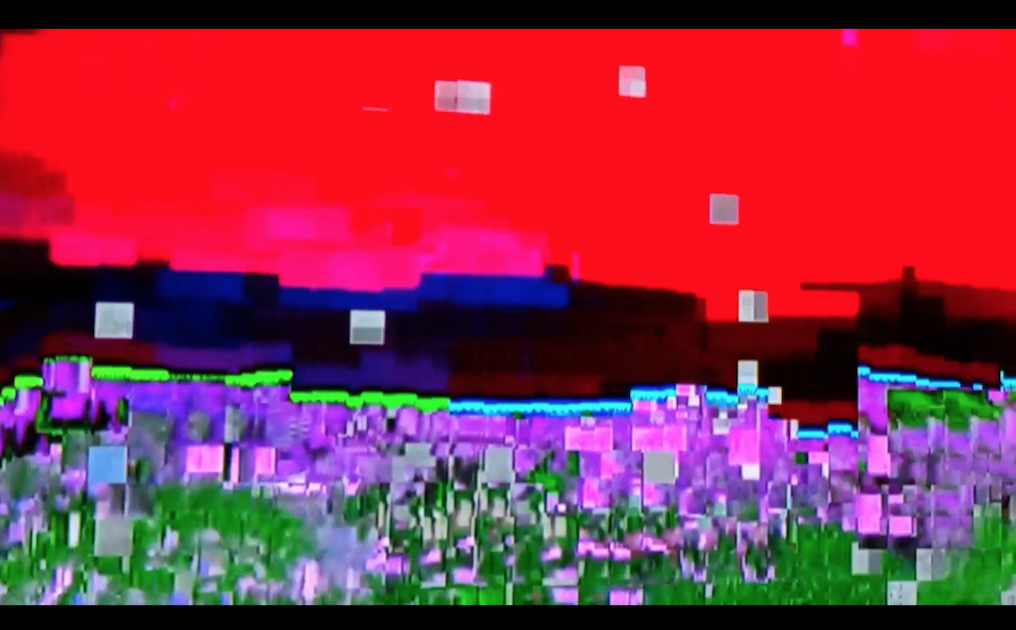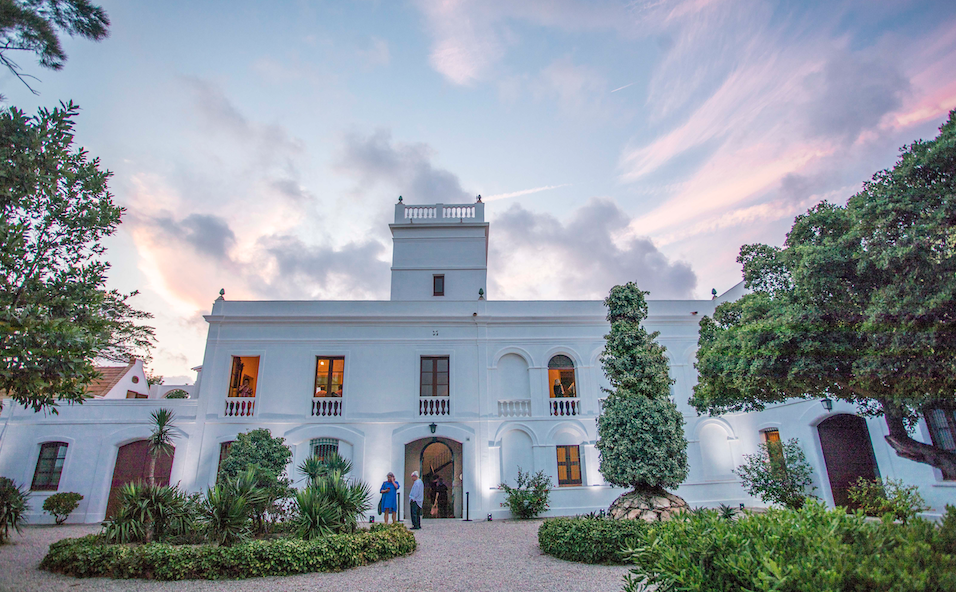contests
The Venice Biennale hosts the presentation of "Catalonia in Venice_ Following the Fish"
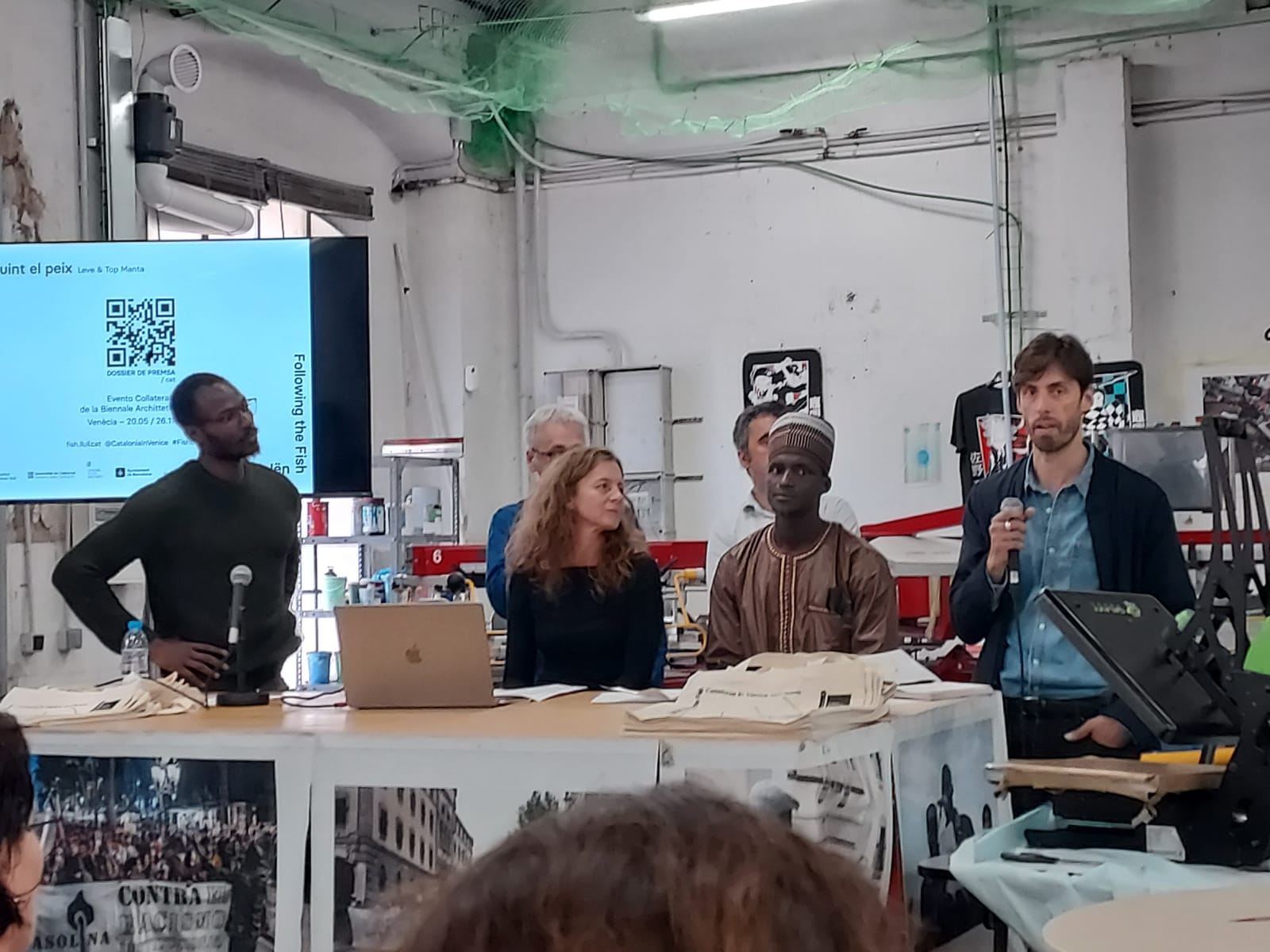
The 18th edition of the International Architecture Exhibition – The Venice Biennale has hosted the presentation Catalonia in Venice_ Following the Fish (Seguint el peix ) within the Eventi Collaterali program. The project curated by Leve in collaboration with Top Manta and produced by the Ramon Llull Institute that can be seen, from May to November, at the Top Manta workshop in Can Batlló (Barcelona) hosted the press conference where the details of the project have been laid out.
The director of the Ramon Llull Institute, Pere Almeda, has stated that "Catalan culture is presented at the Venice Architecture Biennale with a transformation project made from many layers and contents, which represents the reverse of the xenophobic discourse of the extreme right present in many countries, such as now in Italy. The project curated by Leve and from the perspective of Top Manta challenges us and questions the dominant paradigms, highlighting the valuable knowledge of their experience as a migrant collective and raising new questions about architecture and urban space."
The curator of this edition of the Architecture Biennale, Lesley Lokko, has chosen as central theme The Laboratory of the future, with Africa as the protagonist, and with the challenges of decolonization and decarbonization as the main focus.
Through the critical and proactive look of migrant communities on the European arrival territories, Seguint el peix seeks to resituate the places from where architecture is made and the role of architects. Urban planning, work spaces and housing from the perspective of the African diaspora in Catalonia are the focus of the project, with the aim of identifying alternative architectures to the hegemonic ones. In this sense, Eva Serrats, from Leve, explained that "in the work sessions in Can Batlló, complicity and trust have been forged, a common language has been sought and new ways of living have been prefigured in our cities. It is important to note that in this process of meeting and dialogue it has become evident that the questions that the Union is asking are, in reality, the same ones that architecture is currently asking."
Shared struggles such as anti-racism, non-exploitation, the right to the city, food sustainability or feminism are claimed in various elements and actions of the project. Lamine Sarr, from Top Manta, has stated that "It is surely the first time in history that a group of racialised migrants, with a project of reference in the defense of human rights such as the Manter collective of Barcelona, it occupies a leading role in an event as important as the Venice Biennale, historically reserved for the cultural and artistic elites of the global North. We believe it is an act of social justice. Giving space to black people is part of the way to build a truly anti-racist society."
The project that can be seen in Venice is articulated in two axes: the Blanket Market, the exhibition that collects the narrative of the African migrant diaspora in Catalonia from an installation with blankets that are collected and raised from selective way reflecting the act that the maintenance workers perform when they have to pick them up from the streets to escape police persecution, and the laboratory called El Taller de Reparació, where with the participation of students from various schools of architecture and design international, new residential models based on the community are proposed, such as collective kitchens, new reception spaces and the reuse of empty premises.
The title Following the Fish evokes the story behind the exhibition proposal: in Senegal, artisanal fishing was a source of food and wealth for the local economy, but the massive extraction of fish by European ships and from other origins to manufacture feed for fish farms has forced young fishermen to leave their country and travel to Europe in the same boats they have stopped using for fishing, thus escaping the poverty and hunger generated by colonization and plunder by the great powers of the global north.
One of the key points in the process of developing the project has been the workshop where Top Manta manufactures the clothes, a workshop that in itself contains the impulses of the laboratory of the future that Lesley Lokko defends in her curatorial text for the Biennale of Architecture of Venice 2023. In this space, in several work sessions, ideas have been collected, the projects of the Repair Workshop have been listed, the urban problems that challenge the migrant community and 'has finished preparing part of the exhibition material.
As for the important dates of the project that will take place in Venice, three stand out: a silent march with members of Top Manta and the Venetian migrant communities that will mark the beginning of the exhibition on the morning of May 18, a meeting migrant among Top Manta members and Venetian migrant associations on May 20, and a few days of conclusion and debate of the Repair Workshop, with the participation of students from several international schools of architecture and design, among them the Escola Técnica Superior of 'Architecture of Vallès (ETSAV-UPC), Barcelona (ETSAB-UPC) and Reus (ETSA-URV), Lund University and Politecnico de Milan, from 3 to 7 July.




